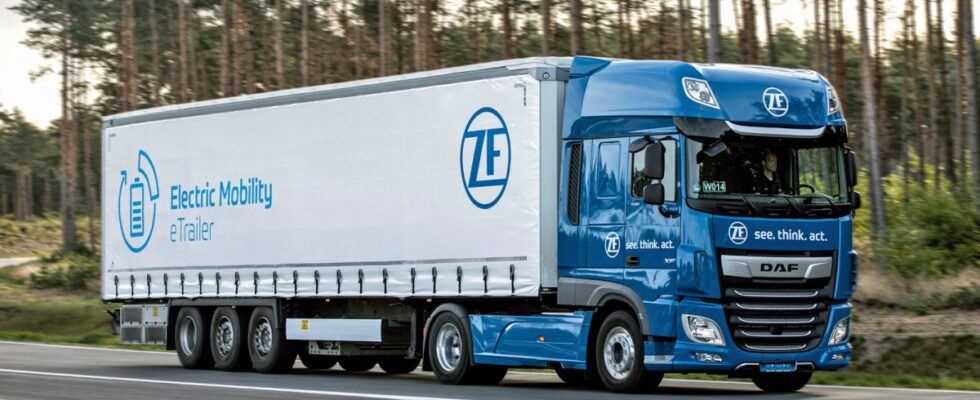In the hope of greater success with the new government, the Bundesverband eMobilität eV (BEM) is launching a new initiative for the approval of trailers with their own battery-electric drive for road traffic, so-called eTrailers.
To this end, the association is organizing a special eTrailer commission with staff from the responsible federal and state ministries, from trailer and vehicle manufacturers, from logistics, supplier, drive and battery technology companies, which will meet at the beginning of the new year. Before that, the working group failed several times due to resistance from the responsible authorities.
The association summarizes vehicles under eTrailers, which usually have a loading area for the transport of goods, but have their own drive and an independent, rechargeable energy storage device. It can also be a trailer behind a tractor unit. Behind towing vehicles such as cars, trucks, buses or tractors, eTrailers, from eCaravans to heavy-duty transports, are intended to provide electrical support for the combination and thus increase the range.
With their electric motor, a battery and the associated control system, eTrailers are able to recover electrical energy when braking, which can then be used to drive the vehicle and, in the case of an eTrailer for heavy goods vehicles, to operate electrical auxiliary units. In this way, they should make a significant contribution to saving climate-damaging emissions – the BEM says: “20 percent and more”. In long-distance transport, it should still be up to ten percent, says the supplier Wabco, which is testing its own eTrailer.
Partial electrification not eligible
However, this already tried and tested and technically checked partial electrification fails due to legal incompatibility within the European Union. According to the BEM press release, the current vehicle registration in the Federal Motor Transport Authority (KBA) is not sufficient.
With its special commission, the BEM would like to start a new attempt to approve eTrailers as a vehicle category. As an accompanying measure to promote the eTrailer, the BEM would like the environmental impact to be offset against the toll, the e-label for such combinations and an adaptation of the driver’s license classes and vehicle documents.
This list alone shows that there will be some thick boards to be drilled. The main argument of the BEM is the reduction of CO₂ in the heavy-duty segment. According to his calculations, more than 270,000 battery-electric 40-tonne trucks would have to be on Germany’s roads by 2030 in order to achieve the environmental goals set. One thing is impossible, as Markus Emmert, BEM board member and head of the special commission puts it.
(fpi)
